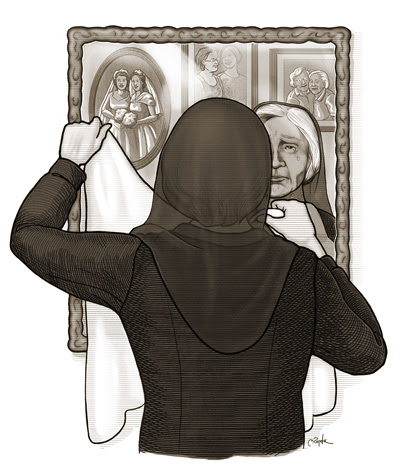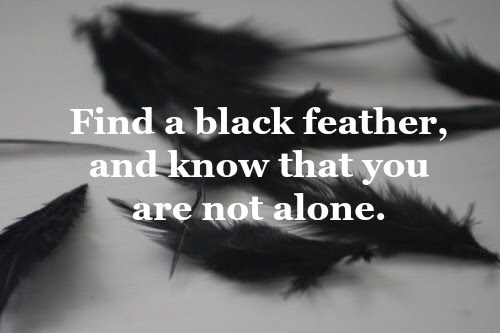I am standing at my kitchen counter, filling Cody’s daily medication boxes. As I do it, I hold my breath. Despite my knowledge of common sense, I cannot deny the irrational belief that if I pour the exact number of pills out into my palm on the first pass, he will have a seizure-free week. He takes an assortment of five different capsules twice a day every day, so only a jumble of exactly seventy will work. This occurs rarely, a feat of sorts, but when it does, I feel happy, lucky–safe.
Do any of the following strike a chord with you? Being extra-careful on Friday the 13th; understanding exactly why most hotels don’t have a thirteenth floor; avoiding black cats; refusing to walk under a ladder; believing you are a lucky or unlucky person–despite the fact that both positive and negative things generally happen to you. There are hundreds more of these superstitions, most of which seem as reasonable as one’s certainty that the earth is not flat.
I am just such a person. While black cats don’t scare me, I do always save lucky two dollar bills and never spend them; when the dogs and I have won in the show ring, I religiously stow away the rubber bands that have held my competitor’s number on, so that I can use them again; I do make sure to step around cracks in the sidewalk, and not just because I don’t want to strip the leather off the heel of my pumps; I always take the same routes while driving, regardless of Google Maps’ traffic reports. All of this is crazy, I know–and yet I repeat it all without fail every time the opportunity presents itself.
I suppose there are people who aren’t superstitious. But I don’t know many. Most of us want to control the general and regular chaos of life by believing that with these little tricks we can influence the outcomes that await us. As a control freak of the first order, I decided to do some research on the subject. It intrigued me: Why do I do such nonsensical things that ultimately have no bearing on reality?

There’s something called “confirmation bias,” according to Web MD, an example of which is “beginner’s luck.” Here you repress the negative things that have happened to you–like losing at blackjack–and remember only the positive–like winning at blackjack, even if it took you ten hands to do so. How about “bad things come in threes,” when you only remember three similar events whose outcomes ran downhill? All of this springs from our dislike of the messy nature of life; we want there to be order, and cling obstinately to the belief that there is a way of controlling what happens to us.
And then, there are practical superstitions, like not walking under a ladder because you don’t want to knock off the window washer and be sued. These make a certain amount of sense. But you can also find literature on this example, which posits that people avoid walking under ladders because it breaks a triangle, like the religious belief that you mustn’t destroy the Holy Trinity–though to me that interpretation seems more as if it dates from the Middle Ages.
On the other hand, even today, in certain cultures people believe it essential to cover all the mirrors in their homes after a loved one dies. One interpretation of the origin of this superstition lies in the old belief that the soul of an individual can be trapped within the mirror if it’s left uncovered–and no one wants this fate to befall anyone who has passed on. However, to me it seems more likely that the one with the drapery in hand doesn’t want to see their own reflection, filled with uncontrollable grief and loss.

When you were a child, did you play tug of war with your siblings over the big breastbone of the Thanksgiving turkey–and believe the winner would get his or her wish? (Hence, of course, the initial source of the word “wishbone” itself.) This old practice dates back to the idea that whomever cracks off the bigger piece will magically get whatever they dream for. In “olden times,” as we used to say when we were youngsters, soothsayers threw bones to predict the future, as they read the patterns of those scattered white remnants. Perhaps this is one origin of the psychiatric concept of wish fulfillment.
All this irrational folklore makes superstition seem quite senseless if we think about it a bit. Still, I find myself admiring our creativity, as we invent it all and let it carry weight in our lives–in spite of our concomitant acceptance of reality.

All in all, I say go for it. Embrace your superstitions. Life is hard enough and if there are ways to set yourself more at ease, enjoy them. I will continue to count Cody’s pills obsessively, and to wear my special rubber bands at dog shows after we’ve won a blue ribbon–and strange as it may sound, I’m not going to apologize for doing either one. They are badges of hope for me on the one hand and armor against the vicissitudes of life on the other. No one else’s derision, or even the clear breath of my own insight, can take away that.
I’d love to hear about your personal rituals–most importantly, the ones that you realize are irrational but which nevertheless inspire you to repeat them. Knowing that others soothe their souls in just this way can make you feel more comfortable, as if we are a community that admits to, and enjoys, a sense of humor about life. Pass those superstitions along here and see how many others join you!
Yours,
Linda
Have a comment or feedback? Talk to Linda!

